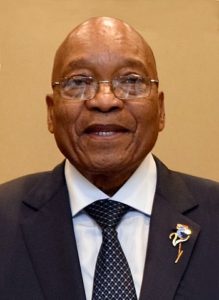By Ben Kerrigan
South Africa was plunged into fresh political crisis on Tuesday when the country’s ruling African National Congress announced that the president of South Africa, 75-year-old Jacob Zuma, had refused to respond to instructions to resign.
The ANC’s decision to announce the “recall” of Zuma came at the end of an extensive meeting that spilled into the early hours of Tuesday morning.
High ANC officials, including party leader Cyril Ramaphosa, attempted in vain to persuade Zuma to step down in the face of a corruption scandal that has sapped support for the party. But despite hours of talks, Zuma refused to budge.
ANC officials admitted they had no idea whether Zuma would respectfully acknowledge their recall demand or defiantly stay in power and face a vote of no confidence in parliament organized by opposition parties.
ANC Secretary General Ace Magashule told a press conference in Johannesburg on Tuesday that Zuma had agreed to stand down — but only if he could oversee a transition period of three to six months. The ANC top brass rejected his offer.
“South Africa’s going through a period of uncertainty and anxiety as a result of the unresolved matter of transition,” Magashule said, adding that the decision to demand Zuma’s resignation was a difficult one “taken after exhaustive discussions,” Zuma said he would address the nation tomorrow, Wednesday, which will take place after a group meeting of all party chief whips scheduled for the same day. Zuma’s days in power are more than numbered, they are over. His quest to cling to power is a sign of desperation and fear of the shame losing power in the face of all the corruption charges against him will cause.
If Zuma refuses to shift from his position and quit, most observers believe the ANC will be compelled into a vote of no confidence in parliament, or present a motion of its own. The collective force of parliament is the only power that can instantly strip Zuma of his position, and parliamentary members appear to be working actively in that direction.
A confidence vote is scheduled for February 22 but opposition has been fuelled by a court action to compel the vote to be brought forward to this week.
One of the opposition groups, the Democratic Alliance (DA), said Zuma could simply ignore the recall notice. “Unless he tenders his resignation, this recall is not worth the paper it is printed on,” the DA said in a statement.
It declared its support for the motion of no-confidence drawn up by another opposition group, the EFF.




